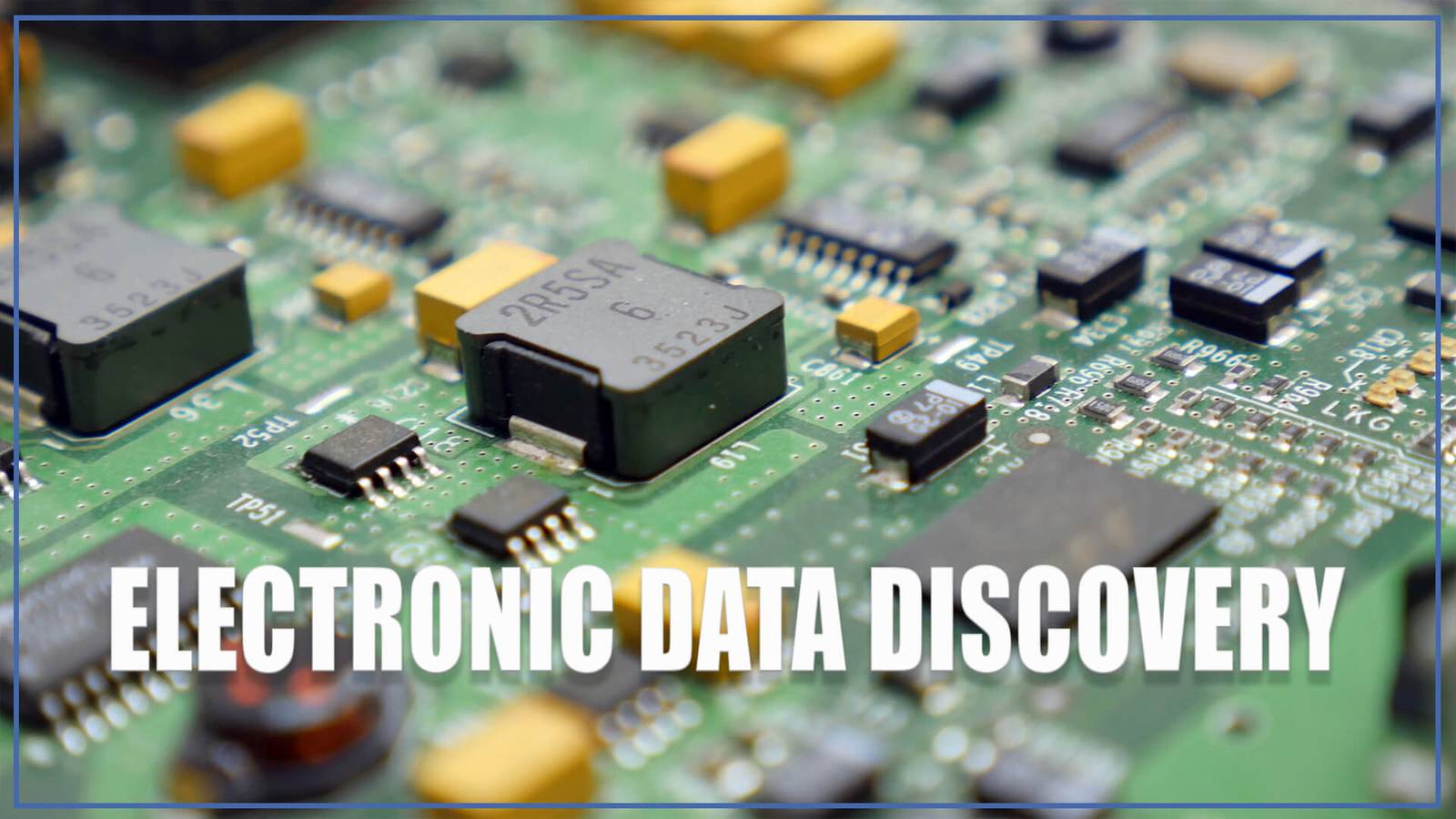Introduction:
Electronic data discovery is an investigative type in which information and data are located from digital devices with the intent of using them in legal proceedings. Somehow, it is similar in many ways with a computer forensic investigation.

In a computer forensic investigation, the electronic evidence is reviewed and analyzed by professionals using a document review platform. It enables investigators to search through a large amount of electronically stored data and information faster and in an efficient way.
What is the Process of Electronic Data Discovery?
Electronic data discovery is a process that refers to the collection, soughing, and searching of electronic data for use in legal proceedings and criminal cases as evidence. It can be done offline on particular computers or with the help of proper network channels.
The hacking of government authorities and court-ordered for the collection of critical evidence also fall in the category of e- data discovery. Electronic data, are easy to handle in nature that makes it best suited for investigation. Also, electronic data is easily searchable.
On the other hand, paper documents, evidence is to be investigated manually. Moreover, digital data are difficult to destroy or remove completely. Even if it is deleted from your device, it can be easily recovered.
In reality, the only method to completely remove or destroy digital data is to physically destroy the computer, hard drive, or any other device where it was stored. The nature of digital data made it perfect evidence for use in litigation.
What Sort of Data Can Be Considered as Evidence?
In the electronic data discovery process, all sorts of digital data can be considered as evidence for any lawsuit. Digital data may include:
- Text messages
- Calendar files
- Images
- Audio Files
- Spreadsheets
- Videos and animations
- Emails
- Computer programs
- Websites and their Cache memory
- Database
All these kinds of data can serve as digital evidence in data discovery. The malware software and viruses like spyware and Trojan also can be investigated and secured in the electronic data recovery process.
Emails can serve as important evidence in many civil and criminal cases because people are less careful about the exchange of information and data through emails rather than in hard copy like letters, memos and reports, etc.
Techniques and Data Process of E-Discovery:
The techniques and process of electronic data discovery can be complex due to the large amount of electronic data that is produced and stored in digital devices. This made the process of data discovery more complex and needed different techniques to recover data from storage devices.
Moreover, other than hard copy documents, electronic data contain additional metadata such as file properties, information about the author and recipient, and date-time stamps. All sorts of metadata are also investigated with the file or document.
It is necessary to secure the original data, information and metadata to avoid data tampering and spoliation for later use in court. After the identification of data from both parties, the data is placed under a strict hold, which means no one can delete, modify or destroy data.
After indexing data into the database, it is analyzed to remove the non-relevant documents, files and emails. Then, it is placed under secure hold, only accessible by reviewers for legitimate use.
What types of electronic data are used during an investigation?
During the electronic data discovery and investigation process, all sorts of data are reviewed and analyzed for legal prosecution. It includes:
- Emails
- Audio files
- Text messages
- Image files
- Spreadsheets and word processing files
- Metadata
- Database
- Phone call log
- Transaction history
- CD-ROMs and flash drives
- PDAs
- Social media accounts detail
- Software programs and web pages
Based on the scenario of investigation, the investigators may need to recover and restore lost data and information, track file changes, and locate files and data involved in cybercrime.
What happens during electronic data discovery investigations?
E-data discovery usually starts when an individual or professional approaches a private investigator in Norman and shows concern about misuse of data, information, or any other electronic information.
The investigator may direct the client to take some actions immediately, i.e., collects information or data related to files or shut down a specific computer or electronic device to prevent any further information loss.
After taking initial steps, the investigator may visit the sites, carefully examine the computer system and speak with other people. Usually, the electronic data discovery, investigation is concerned with specific computer and data files that may be used as evidence.
Data investigators develop a copy of the original hard drive and use a drive copy for further investigation proceeding instead of the original drive. The original computer drive is secured and stored in its original form for later use as evidence.
Based on the situation, the data investigator may use different techniques like surveillance, network investigation, data recovery techniques, computer and network investigation, and special software to collect the evidence and resolve the matter.
Why this is considered a struggle:
We all have a questions if electronic discovery is so important, then why do legal professionals struggle with it? The reason may be that it burdened many legal professionals and meant for them to perform such tasks about which they have no particular knowledge and experience.
Electronic discovery merges both legal and technical fields. A strong and effective electronic discovery system demands close collaboration between IT professionals and the legal team. It seems to be an odd combination.
Another reason is the language difference between both professionals. Which results in the communication gaps between both departments and ultimately as leading to frequent complaints among IT professional and legal advisors.
How to Check If You Need the eDiscovery Data Investigation?
It now becomes common that the ratio of cybercrime is increasing with the rise of technology. Thus, due to this reason, most companies yearly spend billions of dollars on cyber frauds and criminals for protection as well.
As a rule, an eDiscovery Data Investigation is the ideal approach to secure an organization or to discover proof of bad act that can prompt capture or indictment. Signs that there might be a major issue with your electronic information:
- Unauthorized changes in some electronic records or information
- Employees acting dubiously
- The PC frameworks appear slower or appear to be influenced by hacking or infection.
- Your organization is bafflingly losing cash with no paper trail to represent it.
In these circumstances, a certified electronic revelation expert can help you. Whether you essentially lose a particular record or framework, an eDiscovery expert can assist you with recuperating documents that have been lost or erased.
Frequently Asked Questions (FAQs):
1. What is eDiscovery, and how is it being utilized?
Electronic discovery (otherwise called e-revelation, or eDiscovery) is a technique by which gatherings engaged with a lawful case protect, gather, audit, and trade data. Through this way, the investigators can get the data in electronic organizations to utilize it as proof.
2. What is eDiscovery in medical services?
Electronic discovery is the advanced variant of the customary pre-preliminary cycle of a lawyer. In this, the restricting party turns over duplicates of archives in order to discover the significant proof.
3. What are the popular and useful tools for ESI?
The ESI commonly refers to the data investigation under security terms. There are a lot of tools available, but the popular examples of ESI include:
- Spreadsheets
- Word processing files and documents
- Email and videos
- Data attachments
- Call logs
- Communication tools


